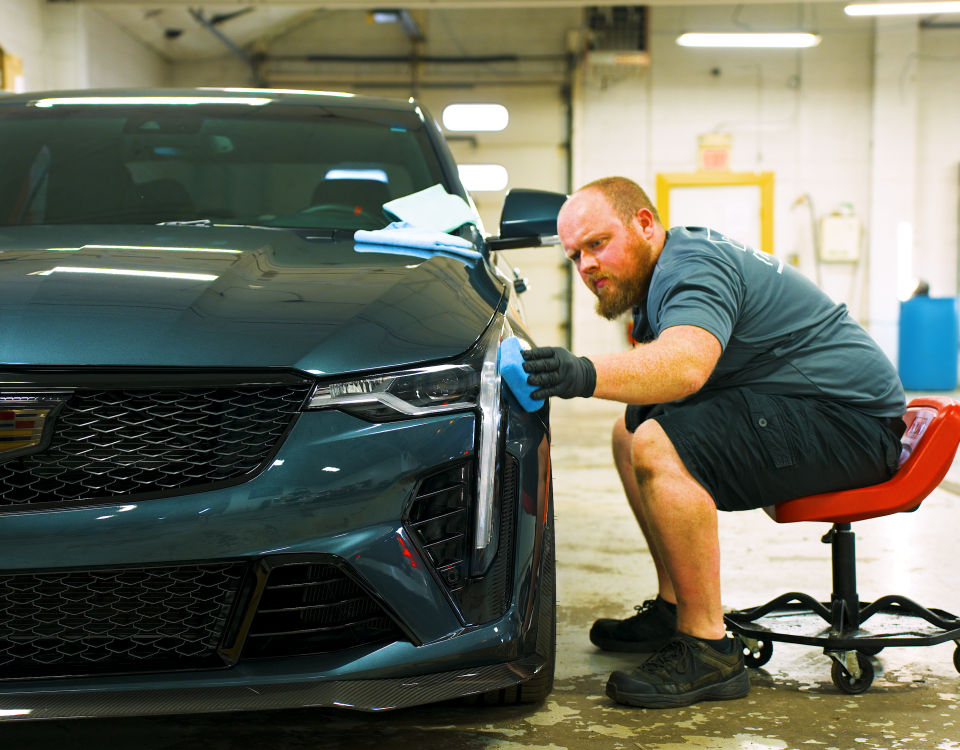When most people think about getting their car windows tinted, they picture blazing summer days and the need to keep their car cool. But is that the only time you can get a tint?
If you’re wondering—“Can I get my windows tinted in the winter?”—this blog will break down what you need to know, including how cold weather affects installation, how long tint takes to cure, and why window tint can be a smart investment in the colder months.
Can I get my windows tinted in the winter?
The short answer is yes, but you need to be smart about it.
Cold weather impacts how well a window tint adheres and cures to your windows. For tint to bond properly, the right conditions need to be created during installation. Professional window tinters know how to manage this. With the right tools and often by working in climate-controlled garages, they’re able to get the adhesive to set correctly for a pristine finish.
With this in mind, it’s strongly discouraged to try to DIY a window tint, especially during the winter months. Even experienced hobbyists struggle to match the precision cuts, create a temperature-controlled and dust-free environment, and use the high-quality films that a professional shop provides. Without these, you’re likely to end up with bubbling or peeling tints—if they stick in the first place.
Another thing to keep in mind is that curing time takes longer in the winter. In the summer, tint film may fully cure in just a few hours. In colder months, however, it could take quite a bit longer. That means you’ll want to be extra cautious when rolling your windows up and down to avoid damaging the film before it’s fully set. An experienced installer will give you detailed after-care instructions.
Does a window tint help in winter?
Window tint is just as helpful in the winter as it is in the summer. In fact, tint can make driving more comfortable and protect your vehicle year-round through:
- Glare Reduction: Winter in Indiana means plenty of snow. Bright sunlight reflecting off snow and ice can make driving difficult. Tinted windows help cut down on that harsh glare.
- Insulation: While usually associated with keeping heat out, tints can have the opposite effect in the winter. Window tint helps insulate your vehicle, making it easier to stay warm even on freezing Indiana mornings.
- Interior Protection: Even in winter, UV rays can fade your upholstery and damage your dashboard. Tint keeps harmful rays out, preserving your car’s interior.
- Privacy: Nervous to leave valuables like holiday gifts in the car? Window tints limit who can see into your car without lessening your own field of vision, adding another level of security and privacy to your ride.
At the end of the day, the answer is yes, you can definitely get your windows tinted in the winter. Just don’t go at it alone. A professional window tint installer can maintain the perfect temperature, apply the film with precision, and walk you through after-care so you can enjoy the comfort, style, and protection of tinted windows no matter the season.
Premier’s mission is to create happiness through professional detailing, and our purpose is to exhibit a philosophy of servanthood! If you have any questions, feel free to contact us or visit our website. Don’t forget to check us out on Facebook, Twitter, and Instagram as well!








